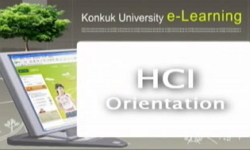This study examines types and characteristics of data collection tasks used in studies on scope ambiguity in English involving a universally quantified noun phrase and negation, and investigates any differences in comprehension patterns across studies...
http://chineseinput.net/에서 pinyin(병음)방식으로 중국어를 변환할 수 있습니다.
변환된 중국어를 복사하여 사용하시면 됩니다.
- 中文 을 입력하시려면 zhongwen을 입력하시고 space를누르시면됩니다.
- 北京 을 입력하시려면 beijing을 입력하시고 space를 누르시면 됩니다.

An analysis of data collection tasks used in studies on scope ambiguity in English involving universal quantifiers and negation
한글로보기부가정보
다국어 초록 (Multilingual Abstract)
This study examines types and characteristics of data collection tasks used in studies on scope ambiguity in English involving a universally quantified noun phrase and negation, and investigates any differences in comprehension patterns across studies using different tasks. Since Musolino’s seminal 1998 study using a truth value judgment task, several other studies on English scope ambiguity have used the same task type or variations on it, while others have tested different tasks. Through a keyword search of relevant databases, the present study found a total of 13 studies dealing with the topic of universal quantification and negation in English published since 1998. Based on tasks’ key characteristics and how they were conducted, seven different basic task types were identified. A comparison of the results of the studies found a difference in the overall comprehension patterns of English native speakers for sentences containing a universally quantified noun phrase in subject position between the truth value judgment task with one type of context story and the other tasks. The results are discussed in terms of their methodological implications, and some suggestions for further research from methodological perspectives are provided.
참고문헌 (Reference)
1 이선영, "한국인 EFL 학습자의 작용역 중의성 문장 처리 연구" 한국현대언어학회 33 (33): 695-713, 2018
2 Musolino, J., "Why children aren’t universally successful with quantification" 44 (44): 817-852, 2006
3 Musolino, J., "Universal grammar and the acquisition of semantic knowledge: An experimental investigation into the acquisition of quantifier-negation interaction in English (Publication No. 9908995)" University of Maryland 1998
4 Conroy, A. M., "The role of verification strategies in semantic ambiguity resolution in children and adults (Publication No. 3339372)" University of Maryland 2008
5 O’Grady, W., "The new handbook of second language acquisition" Emerald 69-88, 2009
6 Chung, E. S., "Sources of difficulty in L2 scope judgments" 29 (29): 285-310, 2012
7 이선영, "Quantifier Scope in English: The View from Sentence Processing" 한국영어학학회 16 (16): 163-186, 2010
8 Lee, M., "Processing, pragmatics, and scope in Korean and English" 19 : 297-314, 2011
9 Group Publishing Limited, "Proceedings of 43rd Annual Boston University Conference on Language Development" 716-729, 2019
10 Musolino, J., "Navigating negative quantificational space" 38 (38): 1-32, 2000
1 이선영, "한국인 EFL 학습자의 작용역 중의성 문장 처리 연구" 한국현대언어학회 33 (33): 695-713, 2018
2 Musolino, J., "Why children aren’t universally successful with quantification" 44 (44): 817-852, 2006
3 Musolino, J., "Universal grammar and the acquisition of semantic knowledge: An experimental investigation into the acquisition of quantifier-negation interaction in English (Publication No. 9908995)" University of Maryland 1998
4 Conroy, A. M., "The role of verification strategies in semantic ambiguity resolution in children and adults (Publication No. 3339372)" University of Maryland 2008
5 O’Grady, W., "The new handbook of second language acquisition" Emerald 69-88, 2009
6 Chung, E. S., "Sources of difficulty in L2 scope judgments" 29 (29): 285-310, 2012
7 이선영, "Quantifier Scope in English: The View from Sentence Processing" 한국영어학학회 16 (16): 163-186, 2010
8 Lee, M., "Processing, pragmatics, and scope in Korean and English" 19 : 297-314, 2011
9 Group Publishing Limited, "Proceedings of 43rd Annual Boston University Conference on Language Development" 716-729, 2019
10 Musolino, J., "Navigating negative quantificational space" 38 (38): 1-32, 2000
11 김미숙, "Korean EFL Learners' Interpretation of Quantifier-Negation Scope Interaction in English" 한국영어학학회 16 (16): 164-183, 2010
12 Crain, S., "Investigations in Universal Grammar: A guide to experiments on the acquisition of syntax and semantics" MIT Press 1998
13 이선영, "Interpretation of Scope by Korean L2 Learners of English: A Self-Paced Reading Study" 한국영어교육학회 65 (65): 59-78, 2010
14 Jo, K., "Children’s interpretation of negation and quantifier scope in L3 English" 24 : 427-438, 2021
15 김현주, "Access to Inverse Scope in Korean-English Bilingual Children" 한국영어학회 11 (11): 415-435, 2011
동일학술지(권/호) 다른 논문
-
- 범태평양 응용언어학회
- Peng, Lin
- 2022
- KCI등재
-
Effects of online L2 learning experiences on L2 selves
- 범태평양 응용언어학회
- 왕완팅
- 2022
- KCI등재
-
Analysis of Korean-to-English machine translation systems’ treatment of passives.
- 범태평양 응용언어학회
- 김채은
- 2022
- KCI등재
-
Unraveling Advanced EFL Learners’ L2 Willingness to Communicate in Extramural Digital Settings
- 범태평양 응용언어학회
- Alimorad, Zahra
- 2022
- KCI등재
분석정보
인용정보 인용지수 설명보기
학술지 이력
| 연월일 | 이력구분 | 이력상세 | 등재구분 |
|---|---|---|---|
| 2023 | 평가예정 | 재인증평가 신청대상 (재인증) | |
| 2020-01-01 | 평가 | 등재학술지 선정 (재인증) |  |
| 2018-01-01 | 평가 | 등재후보학술지 선정 (신규평가) |  |





 KCI
KCI KISS
KISS


